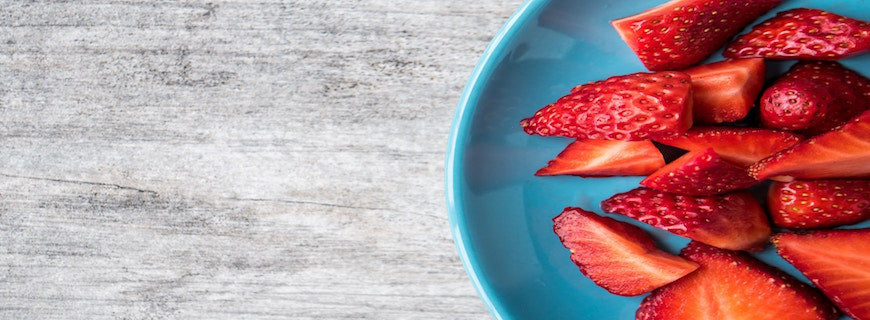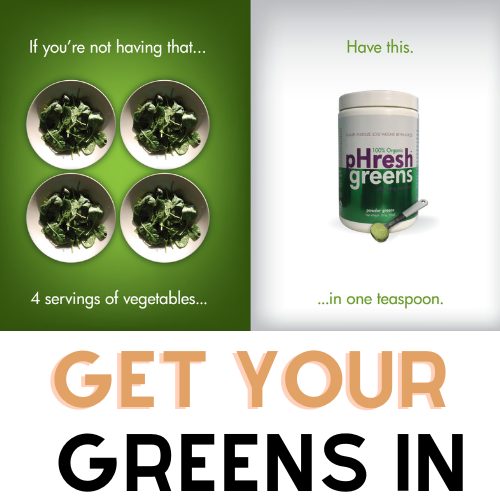During the hot summer days, staying hydrated with good-quality water is a top priority. Additionally, taking measures to ensure that we don’t get burnt in the first place is a must.
The skin is the largest organ in the body, so it makes sense that our diet can influence how the skin responds to sun exposure.
The skin is a barrier that protects us from the external environment, including providing protection from UV radiation and air pollution. While food can protect us from the inside-out, we still need to care of our skin on the outside during prolonged sun exposure.
To benefit from their bioactive nutrients, skin-healthy foods should be enjoyed raw. Eating these twelve foods will not only protect the skin from sun damage, they can also help to heal skin that has already been burnt.
Eating these foods will help naturally mitigate UV damage to the skin, but be aware, they are not a substitute for sun screen.
In this article we’ll discuss the top 12 foods that you can eat to boost skin health and even apply externally to soothe burnt skin.
1) Strawberries
The Journal of Agricultural Food Chemistry published a paper on the photoprotective properties of strawberries.
Researchers stated that flavonoids known as anthocyanins that give fruits their red colour may be the compound responsible for the fruit’s photoprotective properties.
Strawberries contain 108% of the recommended DV of vitamin C, as well as ellagic acid which both removes free radicals and protects the skin from sun damage.
The optimum intake of vitamin C in humans is widely debated – some researchers state that 200 mg per day will optimise the health benefits of vitamin C, whereas the Office of Dietary Supplements (ODS) suggests 90mg for adult males and 75mg for females.
2) Pomegranates
Like strawberries, pomegranates contain ellagic acid which reduces pigmentation caused by solar rays and also mops up free radicals.
What’s more, if you combine pomegranate extract with sunscreen, it has been proven to increase the Sun Protection Factor (SPF) by 20%.
Like many of the foods on this list, pomegranates can be both eaten and used topically to soothe sun-damaged skin.
3) Carrots
When I think of carotene, carrots come top of the list as they are filled with beta-carotene. Carotenoids affect gene expression at a cellular level and provide photoprotective qualities that can mitigate sun damage.
Beta-carotene also helps reduce inflammation caused by sunburn. The vitamin C from carrots is also great to protect the skin from photoaging.
4) Guava
Guava is a tropical fruit that contains five times as much vitamin C as oranges.
Guava is literally jam-packed with vitamin C, providing a whopping 419% of the recommended daily value (DV).
The antioxidants in vitamin C-rich foods protect the skin from sun damage; Vitamin C also helps to produce collagen, which is essential for healthy skin.
5) Red peppers
Both red pepper and red chilli peppers contain lycopene, a carotenoid that can protect the skin from sun damage.
Interestingly, the red or orange colour in tomatoes, red peppers, watermelon, strawberries, sweet potatoes and carrots hold a lot of the magic. Green bell or green chilli peppers are not a good swap, as they don’t contain lycopene.
The take-home? Look out for red fruits and veggies for the phytoprotective qualities.
6) Sweet potatoes
Carotenoids such as beta-carotene and lycopene in sweet potatoes provide the skin with antioxidants that can act as a protective shield against solar rays.
The body converts the phytonutrient beta-carotene to vitamin A, which has been shown to reduce sunburn. Beta-carotene also causes the body to produce melanin, which helps protect skin from sun exposure.
Believe it or not, the starch content of both white and sweet potatoes is also great for soothing sunburn when applied topically.
7) Green tea
Green tea can reduce blood pressure, detoxify the body and enhance relaxation. Green tea also promotes DNA repair in cells that are sun-damaged because of the polyphenol Epigallocatechin Gallate (EGCG).
Green tea contains other polyphenols called catechins that have antibacterial qualities and help to reduce inflammation. Green tea also contains B2 and vitamin E that hydrate and protect the skin.
Needless to say, green tea can be consumed as a drink; it can also be used topically to soothe the skin, making it one of the healthiest teas in existence.
8) Citrus peel and black tea
OK, this one may seem a little bit odd at first – but hear me out.
A research study out of the University of Arizona found that the d-limonene found in high concentrations in citrus peel had anticancer properties.
In fact, an odd mixture of citrus peel and black tea is reportedly very good for protecting your skin.
Black tea has a lot of similar properties to green tea, so consuming both black tea and citrus peel may be odd, but it makes sense.
9) Oatmeal
Oatmeal soothes sunburn due to its antioxidant, antifungal and moisturising properties. Oatmeal contains antioxidants called saponins that help remove free radicals that can accumulate from sun damage.
Oatmeal also stimulates T-cell production, which helps the skin regenerate and boost immunity.
T-cells are white blood cells that help the body fight against invaders like bacteria and parasites. Oatmeal can be mixed with water and used topically on sunburn or as an exfoliator prior to sun exposure.
10) Cucumber
Cucumber is amazing for the skin as it helps the body produce collagen – the primary structural protein in skin.
Cucumber is extremely hydrating: a massive 96% of a cucumber is made up of water. To benefit from cucumbers skin-healthy properties, make sure to eat the peel, as this contains silica that tones and firms up the skin.
Cucumber is also nutrient-rich, and contains vitamin C, caffeic acid, potassium and vitamin K. Vitamin K is essential for healing and regenerating healthy skin.
The caffeic acid in cucumber has anti-oxidant and anti-inflammatory qualities that help protect the skin from DNA damage and oxidative stress.
11) Tomatoes
Tomatoes contain the antioxidant lycopene, the aforementioned carotenoid that gives the tomato its red colour. Lycopene protects the skin from cellular damage, so is great to mitigate the effects of sun exposure.
Tomatoes are also naturally high in vitamin C – one cup of tomato juice provides 188.9% of the recommended DV of vitamin C.
Tomatoes are anti-inflammatory and help balance the body’s pH balance. One study showed that “Prolonged tomato consumption can mitigate ultraviolet (UV)”.
12) Watermelon
As the name suggests, watermelon is made up mainly of water, making them great for keeping you and your skin hydrated in the sun. A whopping 92% of a watermelon is water!
Watermelon contains the antioxidant lycopene and the amino acid arginine which helps to protect the skin from sun damage while aiding blood flow and protein formation.
Lastly, watermelon is filled with nutrients that help build healthy skin like vitamin A, B6 and vitamin C.
Conclusion
There you have it: a dozen nutritious foods to protect against the ageing effects of the sun.
Remember, eating a diet rich in particularly red fruits and vegetables is great for the skin due to a variety of factors, not least the appreciable lycopene content that mitigates sun damage.
Vitamin C is also vital for healthy skin, but the polyphenols and other phytonutrients found in nutrient-rich natural foods deserve a mention too. Ultimately, it is about eating a balanced range of wholesome foods to provide the skin with the protection it needs.
Written by best-selling author and integrative nutrition health coach Rowanna Watson, who has a passion for natural health. Rowanna is an expert in all areas of holistic health, plant-based nutrition, detoxification and personal development.




























Leave a comment